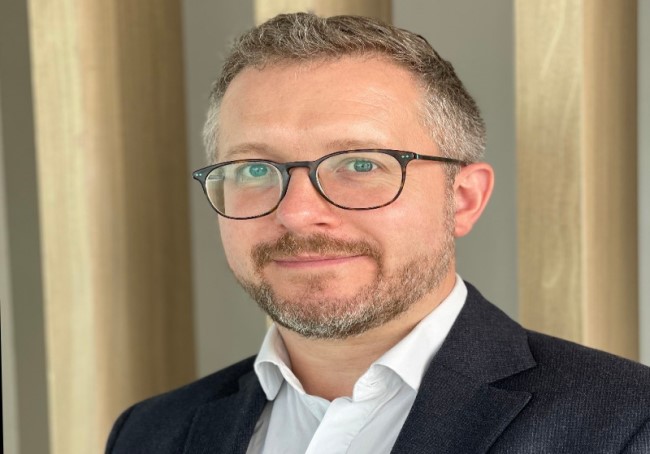James Meadway: Visionary Economist Challenging Neoliberalism

James Meadway, a prominent economist and progressive thinker, has gained significant recognition for his work reimagining the UK’s economic landscape. Known for his role as the Director of the Progressive Economy Forum (PEF) and as a former financial advisor to John McDonnell, the former Shadow Chancellor, Meadway has dedicated his career to advancing policies that confront neoliberalism. His insights cover a broad spectrum, including economic reforms, critiques of neoliberal policies, and strategies for sustainable growth. With a focus on issues like economic inequality and climate adaptation, Meadway is recognised for his unique and forward-thinking perspectives on modern economic challenges.
James Meadway Economist: A Journey Through Progressive Economics
James Meadway’s career as an economist has been marked by his commitment to social equity, macroeconomic reform, and the critique of traditional economic doctrines. His professional journey began after earning a BSc in Economics and Economic History from the London School of Economics (LSE), a master’s in economics from Birkbeck, University of London, and a PhD in Economics from SOAS University of London. Meadway’s academic focus on monetary economics laid the foundation for his future endeavours.
Key Positions and Contributions
Meadway has held numerous influential roles, including serving as the Chief Economist at the New Economics Foundation (NEF), where he led research and developed proposals to tackle structural inequalities within the economy. As Director of PEF, Meadway drives public discourse around progressive economic policies, advocating for a sustainable and inclusive approach to economic growth. His work has also extended internationally, as seen in his recent role as an Economic Affairs Officer at the United Nations Conference on Trade and Development (UNCTAD), where he focused on economic strategy and sustainable development.
James Meadway on Neoliberalism: A Critical Stance
A cornerstone of Meadway’s work is his critique of neoliberalism—a term often associated with free-market capitalism, deregulation, and reduced government intervention in the economy. Meadway believes neoliberal policies have exacerbated economic inequality, created unsustainable conditions, and left public services vulnerable. His arguments emphasise how these policies, implemented since the 1980s, have created a wealth gap and led to rising debt levels, particularly affecting low- and middle-income communities.
The Consequences of Neoliberal Policies
In his writings and public appearances, Meadway frequently highlights the harmful effects of neoliberalism. He argues that these policies have weakened the social safety net and made it difficult for governments to respond effectively to economic crises. For example, during the 2008 financial crisis, neoliberal policies, according to Meadway, hindered the government’s ability to provide necessary support to those hit hardest by the recession. In response, Meadway proposes a shift toward policies emphasising economic resilience and prioritising social welfare over corporate profits.
Alternatives to Neoliberalism
In his vision for an alternative economic model, Meadway advocates for a state-led approach, where government intervention plays a central role in regulating the economy and ensuring equitable distribution of resources. His proposals include measures to curb corporate power, promote worker rights, and invest in green technologies to address the looming climate crisis. He argues that, in the face of growing challenges such as climate change and economic inequality, it is vital to move beyond the limitations of neoliberalism and embrace a more balanced approach that considers the welfare of both individuals and the environment.
James Meadway Podcast: Macrodose
In addition to his writing and public speaking, James Meadway reaches a broader audience through his podcast, Macrodose. Launched as a platform for critical economic discussions, Macrodose provides listeners with weekly insights into global economic issues, often focusing on inflation, austerity, and the state’s role in economic management. Through his podcast, Meadway aims to demystify complex economic concepts and offer an accessible perspective on pressing economic concerns.
Key Themes of Macrodose
Each episode of Macrodose explores timely economic topics, providing listeners with an in-depth analysis of the macroeconomic trends shaping the world today. Meadway uses the platform to critique mainstream economic policies, promote the idea of public ownership in essential services, and discuss innovative approaches to financial management. Topics often include the impact of rising inflation on everyday citizens, the benefits and challenges of public ownership in sectors like water and energy, and the ongoing debate around the Bank of England’s role in managing inflation.
Bridging Theory and Practice
Through Macrodose, Meadway bridges the gap between economic theory and practical implications, making complex ideas understandable to the general public. His discussions on the podcast often reflect his broader goal of fostering economic literacy, empowering listeners to question established economic norms, and equipping them with the knowledge needed to engage in meaningful debates about the economy’s future.
James Medway’s Influence on Economic Policy
Meadway’s ideas have significantly contributed to the discourse around progressive economic policy in the UK. His influence extends beyond academia and think tanks, impacting real-world policy discussions. For instance, his advocacy for a £15 minimum wage has spurred debates about fair wages. At the same time, his calls for increased government intervention in the economy have challenged the dominant free-market ideology.
Economic Policies and Social Equity
One of Meadway’s notable proposals involves shifting the focus of economic policies toward social equity. He argues that monetary policies should benefit all citizens, not just the wealthy or corporate entities. Meadway believes that governments can create a more balanced and equitable society by championing progressive taxation, affordable housing, and universal healthcare. His ideas have resonated with policymakers seeking to address the widening gap between rich and poor, particularly as the cost of living rises in the UK and beyond.
Climate Adaptation and Green Economy
As an advocate for sustainable development, Meadway frequently addresses the need for climate adaptation in economic policy. He emphasises that the economy must adapt to climate change, which requires transitioning to green energy sources, sustainable agriculture, and reduced reliance on fossil fuels. Meadway’s work in this area aligns with the goals of the Progressive Economy Forum, which has organised events and published research to advance climate-focused economic policies.
Why James Medway’s Ideas Are Gaining Traction
Meadway’s critiques of neoliberalism and his proposals for an alternative economic framework have gained traction among policymakers, academics, and the general public. His ideas resonate with those who are frustrated by the status quo and seek new solutions to address long-standing issues like income inequality and climate change. Moreover, his emphasis on practical, actionable solutions has made his proposals more accessible and appealing.
The Shift in Economic Thinking
As the UK grapples with the aftermath of Brexit, the COVID-19 pandemic, and a global inflation surge, there has been a noticeable shift in economic thinking. Many policymakers are reconsidering the value of state intervention in the economy and exploring new approaches to address the interconnected challenges of economic instability and environmental degradation. Meadway’s contributions to these discussions have positioned him as a thought leader in the movement toward a more resilient and inclusive financial system.
Conclusion: The Future of James Medway’s Impact on Economics
James Meadway’s work exemplifies a powerful vision for the future of economics. Through his critiques of neoliberalism, insightful podcasts, and thought leadership at the Progressive Economy Forum, he has become a pivotal figure in the push for economic reform. His advocacy for policies prioritising social equity, sustainability, and resilience has sparked essential conversations and influenced public discourse on what a fair economy should look like.
As the world faces increasing economic and environmental challenges, Meadway’s ideas offer a blueprint for a more just and sustainable future. By continuing to challenge the status quo and propose innovative solutions, he will likely remain a critical voice in the ongoing quest to redefine economic success and create an economy that works for everyone.


